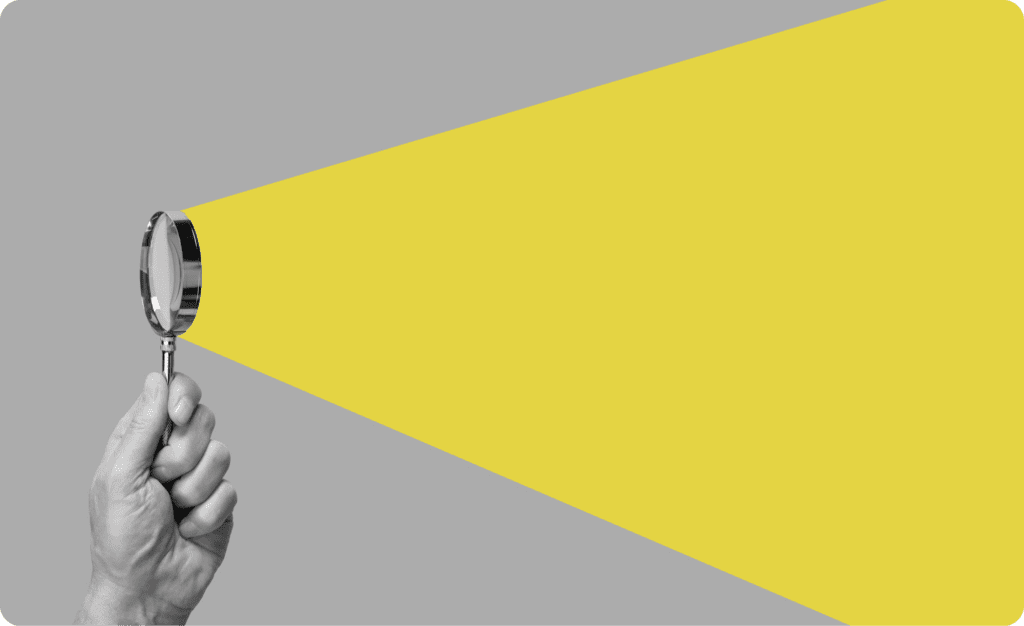Jump to section…

Have you ever wondered how to enhance your cognitive abilities, boost your focus, or improve your decision-making skills? Dive into the world of cognitive coaching to learn how it may be used to foster personal growth, improved performance, and meaningful change.
What Is Cognitive Coaching?
Cognitive coaching is a type of coaching focused on the development of skills and strategies related to cognition. Clients seeking cognitive coaching may do so because they want to improve their intuition, learning ability, focus, and capacity to retain knowledge.
Oxford Learner’s Dictionary defines cognition as “the process by which knowledge and understanding is developed in the mind.” As humans, we are all capable of change. While most brain development occurs early in life, we can learn and improve our cognitive skills at any age. However, there is no set formula for that change. The transformation journey requires a holistic approach.
At a)plan, our unique coaching method adopts a “whole-person” perspective, enabling our coaches to view clients through a comprehensive lens that takes into account the habits, thoughts, and behaviors influencing their cognitive abilities. Similar to executive functioning coaching, this work can and should be embraced by anyone wanting to improve their mind, self, and life.
What to Expect from Coaching
The fundamental principles underlying cognitive coaching are inspired by best practices from coaching in a general sense. Your coach should practice active listening, powerful questioning, nonjudgmental feedback, and area-specific expertise that makes them fit to be a cognitive coach.
Your experience working with a cognitive coach from a)plan will include some key stages:
- Reflection. You’ll work with your coach on your existing thought and behavior patterns in relation to your cognition to identify challenges, successes, and areas for improvement.
- Goal setting. After evaluating where you are today, you’ll focus on where you want to be in the future. What exactly do you want? Deciding what you really want and then getting proud of it is a key part of our process at a)plan.
- Strategy. Multiple Action Plans (MAPs) make up a big part of our cognitive coaching process at a)plan. This is where you and your coach work together on the various ways to chart a path toward your goals.
- Consistent check-in/accountability. You’ll work with your coach each week as they hold you accountable to progress toward your goals.
At a)plan, we also harness the power of technology to enhance the coaching journey. Our web dashboard, mobile app, and state-of-the-art AI features are embedded within our platform. These tools provide clients with the most comprehensive coaching experience available, offering greater accessibility to their coaches and infusing the benefits of coaching into their daily lives. It’s not a once-a-week engagement; it’s a new way of thinking, living, and being.
Common Outcomes from Cognitive Coaching
At a)plan, our coaches meet clients wherever they are in life and help them see the future in an optimistic, accessible way. Despite every journey being unique to the individual, you can expect some common outcomes from this type of coaching.
- Greater capacity to focus. Through techniques such as goal-setting, visualization, and self-reflection, cognitive coaching can help individuals identify and overcome distractions, develop stronger concentration skills, and ultimately improve their ability to stay focused on tasks for longer periods of time.
- Achievement of a certain academic or curricular goal. By working with a cognitive coach, individuals can develop effective study habits, learn time management skills, and build the confidence needed to succeed in their chosen area of study.
- Successfully transitioning in life or work. A successful life or career transition requires a clear understanding of one’s values, strengths, and goals. Cognitive coaching aids clients in removing mental roadblocks or limiting beliefs that may be holding them back from achieving their full potential.
Each of these examples involves elements of cognitive coaching, as they all require forms of learning, adapting, strategy-building, decision-making, and more.
Cognitive Coaching for Different Contexts
Cognition impacts many things in our lives: from school to our jobs to our ability to form strong connections and friendships. Therefore, anyone can use this type of coaching, regardless of their career or goals, because nearly everything necessary in life involves cognition—your ability to remember things about yourself, other people, subject matter, etc.
Because of this, cognitive coaching may be used in different contexts. For example, organizations might hire cognitive coaches to support employee and staff development in relation to work success or team building. Just as commonly, individuals may hire coaches for themselves to focus on personal and professional growth. Both make sense and can level up critical aspects of your life or your organization’s culture.
Exploring coaching for your team or employees? Let us know more about your organization here.

Tips for Hiring a Qualified Cognitive Coach
Cognitive coaching is rooted in understanding the intricacies of the human brain and how it affects behavior, decision-making, and problem-solving. This specialized focus requires a unique set of skills, knowledge, and experience that only some coaches possess. To ensure you find someone who can best guide you on your journey, follow these four tips:
- Find someone who understands the key concepts related to cognition, intuition, thinking, and intelligence. Your cognitive coach should be well-versed in these areas of focus.
- Use a trusted service provider that helps vet coaches. At a)plan, for example, we have a rigorous process and do not let just anyone on our coaching roster. Clients can rest assured that if they are drawn to a coach, a third party has already vetted their credentials and capacity to provide superior service.
- Get on a call with someone to test compatibility before working together. You can learn a lot about someone’s coaching style, expertise, and personality from a quick phone call, which is why we offer free “fit calls” at a)plan. It’s essential that you jive well with your coach to see the best results. Fit calls are critical to ensure a good match.
- And finally, take advantage of tools that help match you with the perfect coach. At a)plan, our coach-matching survey makes it easy for clients to match with the right coach based on their goals and preferences. The survey automatically analyzes your responses to match you with three recommendations from our roster of 60+ coaches.
Are you ready to dive into the world of cognitive coaching? Complete our coach matching survey today, and schedule a free fit call with one of the three coaches we believe will make for a successful match and coaching engagement.
Interested in cognitive coaching?
Take our coach-matching survey to get started.
